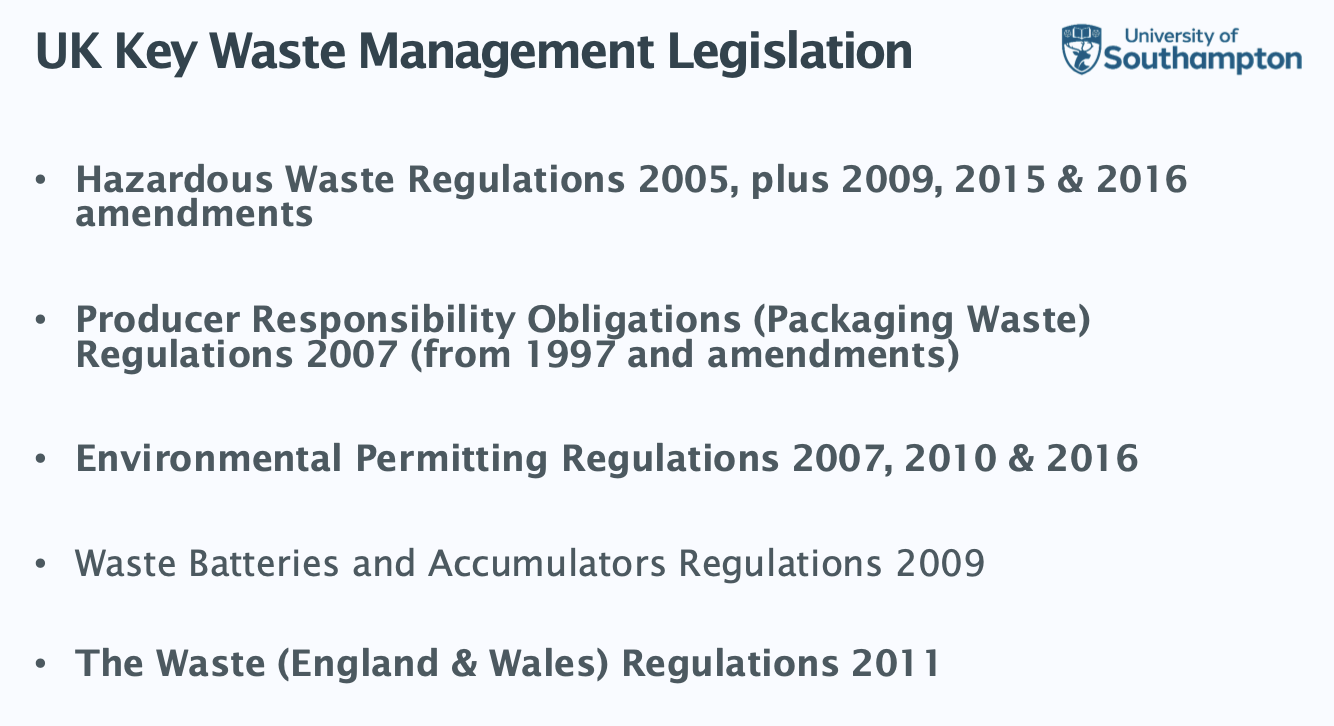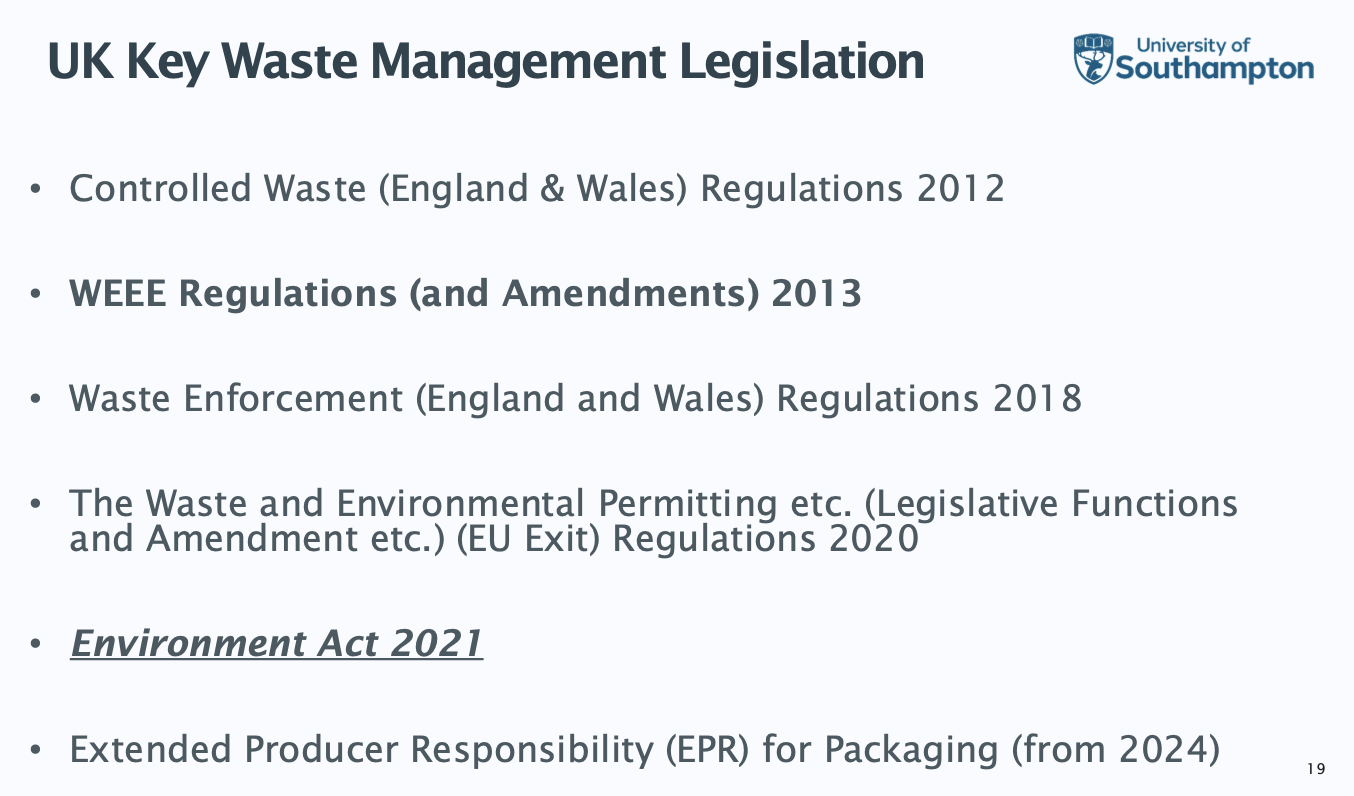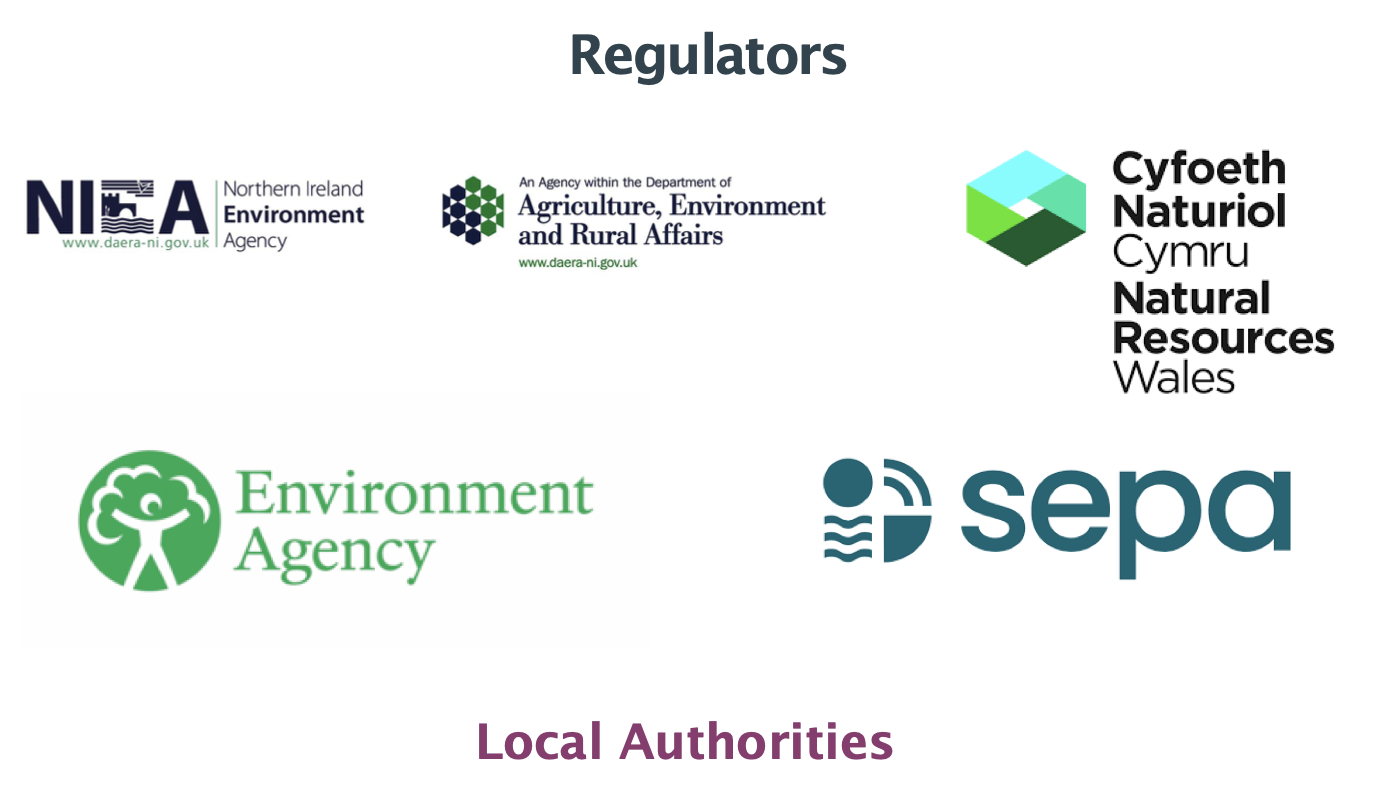waste management legislation
1/21
There's no tags or description
Looks like no tags are added yet.
Name | Mastery | Learn | Test | Matching | Spaced | Call with Kai |
|---|
No analytics yet
Send a link to your students to track their progress
22 Terms
what is waste?
any substance or object the holder discards, intends or is required to discard.
considered to be waste under the European Waste Framework Directive 2008.
when does waste stop being waste?
once a substance or object has become waste, it remains waste until it has been fully recovered and no longer poses a potential threat to the environment.
what is controlled waste?
originally defined in the environmental protection act 1990, section 75.
the controlled waste (England and Wales) regulations 2012 classifies waste as household, industrial or commercial waste, and lists the types of waste for which local authorities may make a charge for collection and disposal.
what are the international controls on waste?
UN convention on the law of the sea (UNCLOS)
1972 London convention on the prevention of marine pollution by dumping of water and other matter
Basel convention on the control of transboundary movements of hazardous waste and their disposal.
what is the EU circular economy package?
monitoring framework on progress towards a circular economy: 10 indicators covering each phase, i.e., production, consumption, waste management & secondary raw materials - including investment, jobs and innovation.
what are the revised waste targets as a result of the circular economy package?
common EU target for recycling 65% of municipal waste by 2030
common EU target for recycling 75% of packaging waste by 2030.
a binding landfill target to reduce landfill to maximum of 10% of municipal waste by 2030
a ban on landfilling of separately collected waste
promotion of economic instruments to discourage landfilling.
what are the key waste targets in the UK clean growth strategy?
20% reduction in food and drink waste
work towards no food waste entering landfill by 2030
recycle 65% of municipal waste by 2035
uk to be zero avoidable waste economy by 2050
increase recycling, reuse, repair and remanufacturing levels.
extend producer responsibility schemes
develop resource efficiency and “industrial symbiosis” with local enterprise partnerships
manage emissions from landfill and research landfill gas capture
support anaerobic digestate used as fertiliser.
what is the England waste and resources strategy 2018?
national strategy to double resource productivity, eliminate plastic waste and eliminate all avoidable wastes by 2050.
possible deposit refund scheme from 2023 (didn’t happen)
what are the strategic ambitions of the England waste and resources strategy 2018?
work towards eliminating food waste to landfill
double resource productivity
work towards ensuring all plastic packaging placed on the market is recyclable, reusable, or compostable
eliminate avoidable waste of all kinds
eliminate avoidable plastic waste.
what are some of the key UK waste management legislation?

more UK key waste management legislation

what’s included in the waste (England and Wales) regulations 2011?
requires businesses to implement the waste hierarchy
changed to waste carrier and broker registration - introduced concept of “waste dealer”
amendments to hazardous waste controls and definition
excludes some categories of waste from waste controls
includes small number of radioactive waste materials
waste collection authorities required other collect waste paper, metal plastic and glass separately.
what are the controlled waste (England and Wales) regulations 2012?
revoked and replaced the controlled waste regulations 1992
classifies waste as household, industrial or commercial
lists wastes for which local authorities may make a charge for collection and disposal.
what is duty of care?
producers of waste have a duty of care to take responsible steps to keep waste safe, that waste is stored safely and securely, and prevented from causing pollution or harm - even after it has been passed to another company.
environmental protection (duty of care) regulations 1991
waste (England and Wales) regulations 2011.
what is the duty of care guidance?
ensure all waste removal companies are registered with the EA and have all necessary licenses or permits
waste transfer notes (WTNs) - agree on all waste quantities, waste codes and correct descriptions with transfer company and countersigned by all parties.
periodically audit the transfer company.
keep copies of transfer notes for at least 2 years.
what is hazardous waste?
waste materials that are potentially toxic and dangerous to the human and natural environment
what are examples of hazardous waste?
asbestos, oil, oily sludges, solvent-based paints, solvents, lead-acid batteries; fluorescent tubes; computer monitors, pesticides.
amended under the waste (England and Wales) regulations 2011.
what do the hazardous waste regulations 2005 plus 2000, 2015 & 2016 amendments say?
implements a definition of hazardous waste into legislation
requires producers of hazardous waste to notify the EA of their premises - except in England
ensures separation of waste types
ensures safe management and cradle-to-grave documentation for movement of hazardous waste
requires cosignees to keep accurate records of hazardous waste and provide EA with quarterly disposal and recovery information.
what is the list of wastes (LoW)?
fully implements the European waste catalogue (EWC)
all waste types have a 6 digit code. legal requirement to use the codes on all WTNs and hazardous waste consignment notes (WCNs)
when is action taken to do with waste?
EA and equivalent bodies will take action where:
hazardous waste is disposed at unlicensed site
hazardous waste is mis-described or mixed with non-hazardous waste
hazardous liquid waste is accepted at landfill
failing to comply with requirements for notification, movements, records, returns, and emergency procedures.
illegal tipping - very strict investigation and enforcement.
what are some penalties?
magistrate’s court - up to 6 months imprisonment and/or £20,000 fine
crown court - up to 5 years imprisonment and/or unlimited fine
other penalties can include community service, disqualification of Directors
regulators always seeks to recover the costs of investigation, clean-up, court proceedings.
who are the regulators?
